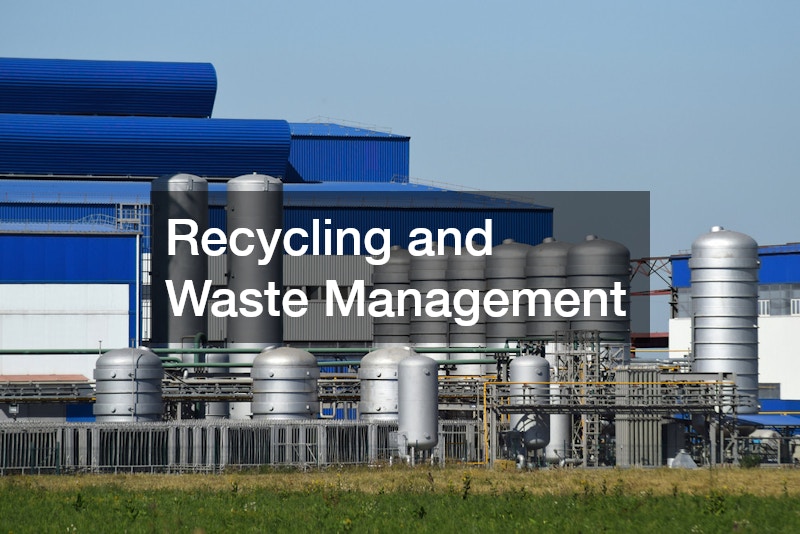Introduction
In the modern era, sustainable industries are increasingly taking center stage in discussions about future advancements. As society grows more conscious of ecological footprints, eco-friendly business practices and the use of renewable resources are becoming not just preferable but necessary. Acquiring the right skills can open the door to some of the best career paths in this burgeoning sector.
Sustainability is no longer a niche focus; it’s a major driving force transforming entire industries, from energy to construction. Understanding this shift and preparing for it can lead to rewarding possibilities in personal career growth and contribution to environmental well-being.
This article maps out potential career paths within sustainable industries, spotlighting necessary skills to thrive in these roles. With the world pivoting to greener pastures, now is the perfect time to explore how you can position yourself favorably in these emerging fields.
Why Choose a Career in Sustainable Industries?
The global demand for sustainability and renewable energy sources is pushing forward with unprecedented force. As industries pivot to greener energy solutions, job forecasts indicate a rapid growth in sectors committed to sustainability. It’s one of the key reasons why you should consider pursuing one of the best career paths within sustainable industries.
According to a recent study, sustainable industries are expected to expand by a significant percentage by the year 2030, becoming one of the primary economic drivers worldwide. These statistics not only highlight growth potential but also reinforce job stability within these industries. It illustrates why more professionals are considering entering this field, spurred on by both opportunity and necessity.
Eco-conscious career fields offer much more than economic benefits; they provide job satisfaction knowing that your work contributes to improving the planet. This sense of fulfillment, combined with the evolving job market’s stability, makes sustainable industries exceedingly attractive to career strategists today.
Top Sustainable Career Paths and Skills You Need
Careers in Renewable Energy
The renewable energy sector is on a swift upward trajectory, offering some of the best career paths available today. Working at a geothermal heating equipment company, for example, involves engaging with innovative design, installation, and maintenance of groundbreaking geothermal systems. As the demand for green infrastructure grows, so does the importance of roles within this space.
Professionals looking to excel in renewable energy often require a solid grounding in HVAC systems, along with certifications in renewable energy domains and fundamental engineering competencies. Mastery in these skills significantly amplifies one’s employability and makes one a valuable asset to potential employers.
To bolster success chances in this dynamic field, aspiring professionals should pursue certifications in geothermal energy technology. This actionable strategy can distinguish you in a competitive job market and encapsulate your commitment to playing an active role in ushering in sustainable energy solutions.
- Technical Skills: Proficiency in HVAC systems, renewable energy certifications, and engineering principles.
- Soft Skills: Problem-solving, project management, and analytical thinking.
- Action Plan: Enroll in geothermal energy courses, gain hands-on experience in system installation, and pursue internships.
Recycling and Waste Management
The recycling and waste management sectors play a pivotal role in the sustainable industries landscape, contributing an impressive $117 billion annually to the U.S. economy as reported by the Institute of Scrap Recycling Industries. Picking a career within a scrap metal recycling business positions individuals at the forefront of change in resource conservation and waste reduction.
Roles in this sector involve process improvement across recycling facilities, logistics oversight, and driving business development initiatives. Essential skills include a deep understanding of materials science, market trends, and astute operational management capabilities.
Engaging in these activities facilitates professionals’ advancement in their respective fields while also empowering them to impact environmental sustainability meaningfully. This makes the recycling and waste management path one of the best career paths for aspiring professionals looking to blend economic viability with ecological contribution.
- Technical Skills: Knowledge of materials science, process improvement, and logistics.
- Soft Skills: Communication, market analysis, and environmental advocacy.
- Action Plan: Obtain certifications in recycling operations and learn about global waste management practices.
Green Construction
The green construction sector offers diverse and plentiful opportunities. A roofing business specializing in eco-friendly solutions offers roles in solar panel integration and the use of reflective materials. The approach largely focuses on designing structures that maximize energy efficiency while maintaining aesthetic appeal.
Career-seekers in this field need robust construction knowledge, an understanding of energy-efficient materials, and project management skills. This unique skill set defines the capacity to deliver on cutting-edge projects that meet modern energy standards.
The path to success entails learning about LEED-certified materials and sustainable roofing techniques. Focused efforts in these areas assure that construction professionals can significantly impact reducing construction’s ecological footprint, thus positioning them advantageously in the market.
On the artisan front, careers in a cabinet business provide professionals with opportunities to innovate by making custom, sustainable cabinetry using eco-friendly materials. Creativity, woodworking acumen, and proficiency in design software are crucial skills here. Excelling in these skill areas allows for the creation of environmentally conducive interiors, offering customers stylish and sustainable choices.
- Technical Skills: Expertise in LEED-certified materials, solar panel integration, and sustainable design.
- Soft Skills: Creativity, leadership, and teamwork.
- Action Plan: Take courses on energy-efficient building techniques and sustainability in construction.
Landscaping and Outdoor Projects
With expanding urbanization, sustainable landscaping emerges as a vital component of future cities, and thus, a top career path. A local natural stone supply business represents an avenue where professionals can partake in sourcing and selling natural stones for eco-friendly landscaping and construction projects.
This role demands a comprehensive knowledge of geology, excellent customer relations, and effective logistics management. Professionals can establish themselves as invaluable community resources by connecting with local contractors and becoming preferred suppliers.
A paving business also emerges as a sustainable career path by delivering eco-friendly paving solutions with recycled or permeable materials. Essential skills include civil engineering knowledge, environmental science insights, and superior business management expertise. By positioning their businesses as green solution providers, professionals in this domain appeal to a new wave of environmentally conscious clients.
- Technical Skills: Knowledge of geology, civil engineering, and eco-friendly materials.
- Soft Skills: Client relationship management and project coordination.
- Action Plan: Partner with contractors, learn sustainable landscaping methods, and build a network of suppliers.
Technology and Innovation in Sustainability
Custom AI Call Centers
Technology and sustainability intertwine powerfully in custom AI call centers that cater to eco-conscious businesses. The role focuses on developing AI-driven solutions that enhance communication efficiency while minimizing environmental impact. It represents one of the exciting avenues among the best career paths in tech-driven sustainability.
Key skills for this career path include AI development, machine learning proficiency, and adept customer relationship management. As AI adoption in business is expected to grow by 35% annually by 2030, the demand for professionals capable of creating AI solutions with a green focus is poised to rise.
Pursuing specialized online courses in AI programming can foster the development of niche skills sought after in this field. By equipping oneself with these capabilities, professionals can better position themselves for success in an increasingly AI-centric business world, driven by ecological considerations.
- Technical Skills: AI development, machine learning, CRM systems, and supply chain optimization.
- Soft Skills: Critical thinking, data analysis, and customer-centric innovation.
- Action Plan: Take online AI programming courses and specialize in sustainability-driven software applications.
CRM Property Management Software
The intersection of technology and real estate sustainability creates exciting career prospects with CRM property management software. In this role, professionals implement software tailored for overseeing energy-efficient real estate management practices.
This avenue requires proficiency in CRM systems, along with sound knowledge of property management strategies that prioritize energy conservation. Such careers offer the potential to revolutionize conventional systems by integrating sophisticated tools for energy tracking, adding significant value to prospective employers.
By facilitating seamless integration of these tools, careers within CRM property management software not only benefit businesses operationally but also contribute to a larger goal of achieving energy efficiency across industries.
- Technical Skills: Proficiency in CRM platforms, energy-efficient property management, and data analytics.
- Soft Skills: Communication, problem-solving, and attention to detail.
- Action Plan: Learn CRM tools, focus on energy-efficient strategies, and attend
Material Requirement Management in Manufacturing
As a sustainable career path, material requirement management emphasizes streamlining eco-friendly sourcing and inventory management for manufacturers. This role is central to reducing waste and ensuring material utilization aligns with sustainable practices.
Professionals in this domain need a keen understanding of supply chain management, the latest eco-friendly material innovation, and exceptional data analysis skills. These competencies enable spiraling sustainable manufacturing practices, reducing resource strain and fostering environmental awareness.
Continuous investment in learning ERP software systems and keeping abreast of sustainable material innovations ensures these professionals remain instrumental to their organizations’ operational and environmental goals.
- Technical Skills: Expertise in ERP and MRP software, sustainable material sourcing, and supply chain optimization.
- Soft Skills: Analytical thinking, strategic planning, and decision-making.
- Action Plan: Enroll in supply chain management courses, gain hands-on ERP experience, and stay updated on eco-friendly material trends.
Fire Sprinkler Hydraulic Calculations
Incorporating safety into sustainability, careers involving fire sprinkler hydraulic calculations focus on designing efficient fire protection systems. This intersection of safety and engineering provides another promising career path in the green industries.
The role requires a profound understanding of hydraulic modeling, adherence to safety standards, and strong engineering calculation skills. Ensuring safety while minimizing resource use underscores the dual benefit of this career for professionals passionate about maintaining safe environments while advancing sustainability.
Obtaining certification in fire safety and engineering can serve as an essential step into entering this field. Skilled professionals in this niche contribute to sustainability while safeguarding organizational assets and lives.
- Technical Skills: Proficiency in hydraulic modeling software, understanding of fire safety codes, and engineering calculation methods.
- Soft Skills: Attention to detail, problem-solving, and effective communication.
- Action Plan: Pursue fire safety engineering certifications, practice hydraulic calculation techniques, and gain experience with safety system design.
Building Your Career in Sustainable Industries
Embarking on a career within sustainable industries involves strategic steps that can set you up for future success. Initially, delve deep into researching industries with substantial growth potential, identifying those best aligning with your skills and interests.
Investing time and resources in acquiring certifications and pursuing specialized training can significantly enhance your professional capabilities. These endeavors aid in establishing credibility and creating distinctive expertise in your selected path.
Networking with professionals across the sustainable industries landscape provides valuable insights and forms connections that can propel your career forward. Attending industry expos and webinars further develops your understanding, keeping you abreast of current trends and developments.
Future Outlook for Sustainable Careers
The growth potential for sustainable industries is immense, presenting lucrative prospects for job seekers. As companies and governments align towards sustainability, available roles and niches will continue evolving, benefitting those best prepared to step into these opportunities.
Adaptability becomes crucial, with continuous learning and skill enhancement serving as vital insurance against industry shifts. The dynamic landscape means that professionals who commit to lifelong learning stand to gain the most in terms of career advancement.
Government policies and global initiatives substantially shape demand trends, playing a vital role in driving sustainable careers’ expansion. Understanding these forces enables job seekers to navigate and harness opportunities effectively.
Conclusion
Sustainable industries present diverse and compelling career opportunities for those ready to embrace the shift towards greener practices. From the economic dynamism they embody to the fulfillment they provide, these fields encapsulate some of the best career paths available today.
Bravo to those who choose to dive into this realm, where the potential for a fulfilling career aligned with environmental values is limitless. Now is the time to take definitive action—start researching, upskilling, and networking to carve out your niche within this exciting sector.
The growing importance and continuous evolution of best career paths warrant immediate exploration, promising not only personal prosperity but a chance to contribute to a sustainable future for all.
FAQs
1. What industries offer the most opportunities in sustainability?
Sustainable industries like renewable energy, recycling, green construction, and eco-conscious technology have the fastest growth. According to [source], these sectors are projected to expand by over 25% annually, providing stable and rewarding career options.
2. How can I start a career in sustainable industries?
Begin by identifying your interests and researching the skills needed. Pursue certifications, internships, or apprenticeships in areas like renewable energy or green building to gain relevant experience. Networking with professionals in the field can also open doors.
3. Are there certifications for sustainable careers?
Yes, certifications like LEED for construction, geothermal energy certifications, and AI-related courses for green tech are available. These credentials enhance employability by showcasing specialized expertise in sustainability.
4. What is the earning potential in sustainable careers?
Salaries vary by field. Renewable energy engineers, for example, can earn an average of $80,000-$120,000 annually, while AI developers in sustainability-focused roles may exceed $150,000. Pay scales are competitive due to the growing demand.
5. What are the challenges in entering sustainable industries?
Challenges include keeping up with rapidly evolving technologies and meeting the high upfront costs of training and certifications. However, government incentives and scholarships can help mitigate these obstacles.
References
- Institute of Scrap Recycling Industries.
- U.S. Bureau of Labor Statistics, Renewable Energy Job Projections.
- LEED Certification Guide.
- PwC Report on AI Adoption in Sustainable Businesses.
- Global Sustainable Development Report, UN, 2023.




